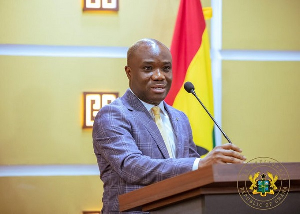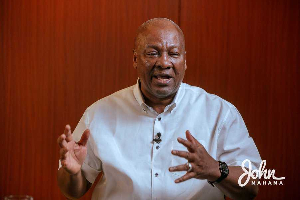? Comment on previous article (29/04/?05)
Monetary policy and fiscal policy work in markedly different ways, although they might be used to achieve similar objectives, and this reinforces the need for their independent management. It is easy to feel the short term impact of government expenditures, but what happens to a change in interest rates will have a time lagged effect on the economy.Monetary policy and fiscal policy sometimes might even work against each other (the so-called output gap conflicts). Adjusted Consumer Price Index (CPI) inflation, real exchange rates, foreign interest rates, the expected output gap, the level of unemployment, and other country-specific indicators are all relevant in deciding what the nominal interest rate should be for inflation targeting monetary policy.
We have a very weak economy base, and the socio-economic fabric structure doesn?t augur well for the implementation of policies from different countries with a different economy layout. But if you don?t stand up for something, you may fall for anything. That?s why, it is always better to try something that has been time tested, and avoid the implementation errors of your predecessors. Domestic income generation for the government is improving, but continues to be weak, since not many in the working class pay their taxes. With no comprehensive database to help identify people in Ghana, and so many payments made outside the banking system, solutions to this and similar problems will continue to dodge us. Macro-economics is a very tricky issue, because we always look at the big picture and talk about aggregate output variables and the rest. But realistically, the economy is made up of the independent decisions of individuals and firms, and government action.
However, everything about the economy will result in consumers? being able to spend more or less (that is why the CPI measure is the single most important tool to measure the short term ?health of the economy? in USA). But consumer spending or lack thereof, will also determine whether the economy is growing or not. And it can be realised that there is some form of auto-correlation between economic growth, job creation, purchasing power parity and the rest. Increased investments and high employment rates will imply increased spending power, but this will also put an inflationary pressure on the economy.
Of course, this is a simplistic analysis of the situation, but what it drives home clear is that all the different macro-economic variables are somehow linked to inflation. But what complicates the effect even further is the fact that the variables are also linked among themselves. That means a measure to only increase exports, will create employment in that sector and improve foreign exchange reserves, but might unintentionally increase inflation countrywide, since it is an expansionary economic policy. If government continues to borrow more than it earns, and this money doesn?t go into real investments but other forms of recurrent expenditures, this will result in increasing the interest rates, slowing down the economy, and rather create unemployment. The intuition here might not be so obvious, but this will be the resultant effect of a lack of a coherent strategy in monetary policy.
Analysing movements in the CPI inflation, adjusted for extraordinary items (also termed the core inflation), and seeking to push it with changes to the nominal interest rate, to a level which is optimal for real economic growth, might therefore be very helpful to the long term productivity of the economy. Different governments have tried many strategies, including exchange rate targeting, but the relative success came with inflation targeting. The current system can be improved. It is a matter of figuring out what is important and looking at it more carefully, and this will start with making clear how monetary policy should be managed in Ghana. Who should manage it? What will it seek to achieve? How can we implement it our own way to make it succeed? How can we monitor its performance?
Managing an economy in a developing country like our own is not easy. Significant government revenues and costs continue to depend on exogenous global prices of the commodities we buy and sell. Primary commodity (no value added) exports continue to dominate our total exports, with very little diversification from the old traditional commodities we have been exporting since the Gold Coast era. Domestic business activity does not yield much revenue to government; neither does it create the level and quality of employment needed as a shock absorber to insulate Ghana from adverse effects of unfavourable global prices. We continue to look up to Western Europe and North America to trade with, instead of encouraging regional partnership and trading more pragmatically. Today, the EU has benefited immensely from regional corporation, an idea originally introduced by an African (Dr. Kwame Nkrumah). We continue to seek non-existent help from people who pretend to be friends, but only wish that our current situation will persist, so that the supply of the kind of labour they need to do jobs that their countrymen are not prepared to take, will not cease. We hear about GDP growth rates, disciplined fiscal spending, stable economy etc, etc. All these don?t mean much, and is even questionable, if it cannot justify any improvements in the standard and cost of living of the ordinary Ghanaian.
Macro economic stability is a necessary condition for productive economic growth, but it is not sufficient, as some analysts will wish to think, and this is clearly evidenced by our current situation. With our political environment very stable and promising, what will fuel economic growth is the ability to increase private sector investments and thus create employment, but how can investments increase, if the private sector cannot source funds due to high interest rates? And the interest rates will logically not come down, as long as inflation continues to be high.
The situation is not easy and the difficulty is felt across board. Our forefathers were bought and forced out of their motherland to be slaves in the West, but I wonder if any force will be needed today, if a Western ship should berth at our port and request for, even, free ?slaves.? Unless you are digging gold or you are a magician, it is very difficult to fathom how a normal business start-up can make at least 22% return on capital employed to be able to be in active business in the current environment. Total economic success might not come from anywhere else, but will start with small successes resulting from improvements to the various aspects of the system we practice. I believe monetary policy in Ghana is one clear such example.
Kwabena Owusu Ampong
BSc Engineering, KNUST, Ghana
Master?s in International Business, NHH, Norway
Candidate for MSc in Financial Economics, BI NSM, Norway

Views expressed by the author(s) do not necessarily reflect those of GhanaHomePage.
Other postings to Ghanaweb:http://www.ghanaweb.com/GhanaHomePage/diaspora/artikel.php?ID=53318 http://www.ghanaweb.com/GhanaHomePage/diaspora/artikel.php?ID=45825 http://www.ghanaweb.com/GhanaHomePage/NewsArchive/artikel.php?ID=80363
BSc Engineering, KNUST, Ghana
Master?s in International Business, NHH, Norway
Candidate for MSc in Financial Economics, BI NSM, Norway

Views expressed by the author(s) do not necessarily reflect those of GhanaHomePage.
Other postings to Ghanaweb:


















